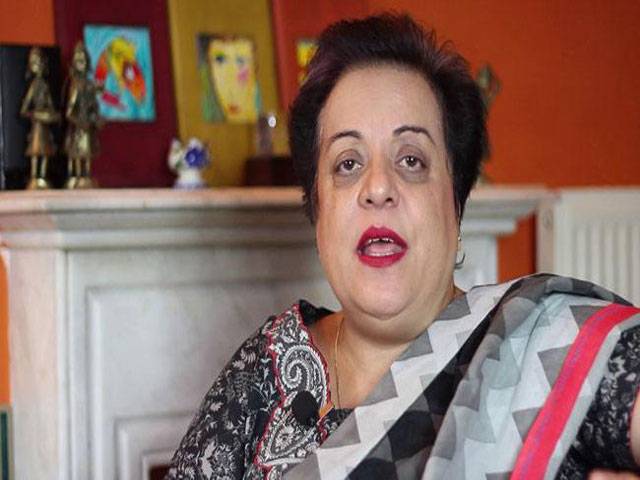ISLAMABAD - After the disintegration of Soviet Union, the Nato’s role has become ‘irrelevant’ in the global politics, Strategic Studies Institute Islamabad (SSII) Director-General Dr Shireen Mazari said on Monday.
Speaking at a workshop, “The Global Strategic Environment and Pakistan” organised here by the SSII, Dr Mazari gave a brief overview of the world order in the post-Cold War era.
The purpose of the workshop was to provide the audience with an insight on important issues related to the evolving global strategic environment.
The participants included students from various universities including National University of Modern Languages, Quaid-i-Azam University, National Defence University, National University of Sciences and Technology and the University of Peshawar.
Dr Mazari said to give a rationale to its existence, “Nato started out-of-area operations such as in Afghanistan.”
While discussing the prevailing international system, she also referred to Ralph Peter’s article: “Blood Borders” that was published in the June 2006 issue of the US Armed Forces Journal where he predicted that powerful Muslim states would be weakened and ultimately broken up, which was exactly “what is happening in contemporary Middle East.”
In the post-9/11 era, came the Greater Middle East Initiative, or Broader Middle East Initiative, which claimed to promote liberal democracy and freedom of speech in these Muslim states, and resulted in the Arab Spring, Dr Mazari added.
“There is still instability in the region which resulted in weakened Arab states. This instability created a power vacuum, which further strengthened non-state actors, and is reflected most clearly in the rise of the militant group Daesh,” she said.
Dr Mazari emphasised that currently the principle of “coalitions of the willing”, was being applied with the direct intervention by certain states in Yemen and Syria bypassing the UNSC.
She argued that there was another parallel system led by the US, which was the system of “Core States.”
This system allows the US to pursue its strategic interests through its strategic alliances, Dr Mazari said.
She argued that the leading core states are the UK, Poland, India, Japan and Australia.
“Parallel to these developments, there is also enormous global economic interdependence and the creation of institutions such as International Criminal Court (ICC), which serve as a counter to the US system of core states,” Dr Mazari said.
She stressed that the concept of “Coalitions of the Willing” might be intensified with President Donald Trump in the White House.
Dr Mazari also provided an overview of nuclear arms control and disarmament and Pakistan’s Nuclear Policy during the workshop.
She said that the Nuclear Non-Proliferation Treaty was an example of the formal mechanisms of the nuclear non-proliferation regime.
Some informal mechanisms, Dr Mazari said, also remained significant such as the Nuclear Suppliers Group that had also become an important feature of the global non-proliferation regime.
“India expanded its fissile material stockpiles after the Indo-US nuclear deal,” she said.
Dr Mazari highlighted how the Indo-US nuclear deal and the NSG waiver for India had undermined the global non-proliferation regime.
She said that the contemporary non-proliferation debate was focused exclusively on the nuclear programmes of certain countries including Iran and Pakistan.
On the issue of Fissile Material Cut-off Treaty (FMCT), she said that Pakistan should continue its opposition to FMCT and ask for an FMT else the country will be at a permanent disadvantage.
About terrorism, Dr Mazari said that Pakistan paid a heavy price in fighting terrorism as it was a frontline state in the global war on terror.
To cope with the menace of terrorism, she suggested an all-encompassing strategy, which is required to deal with the multi-level terrorist threat.
Dr Mazari also criticised the government for non-implementation of the National Action Plan.
“There is a need to focus on the root causes of terrorism, not simply the symptoms. In this scenario, political dialogue and peaceful resolution of conflicts become essential tools with which to fight terrorism,” she added.
Dr Mazari indicated that Pakistan currently lacked a strong foreign policy in this changing global strategic environment.
She also pointed out that Pakistan lacked a viable Kashmir policy, which was the first and foremost step Pakistan should take for the resolution of the conflict.
Dr Mazari said that Pakistan had now successfully tested Babur III Submarine Launched Cruise Missile and had attained second-strike capability.
“Moreover, after the development of Ababeel, surface-to-surface ballistic missile Pakistan has successfully countered India’s Ballistic Missile Defence System,” she maintained.






